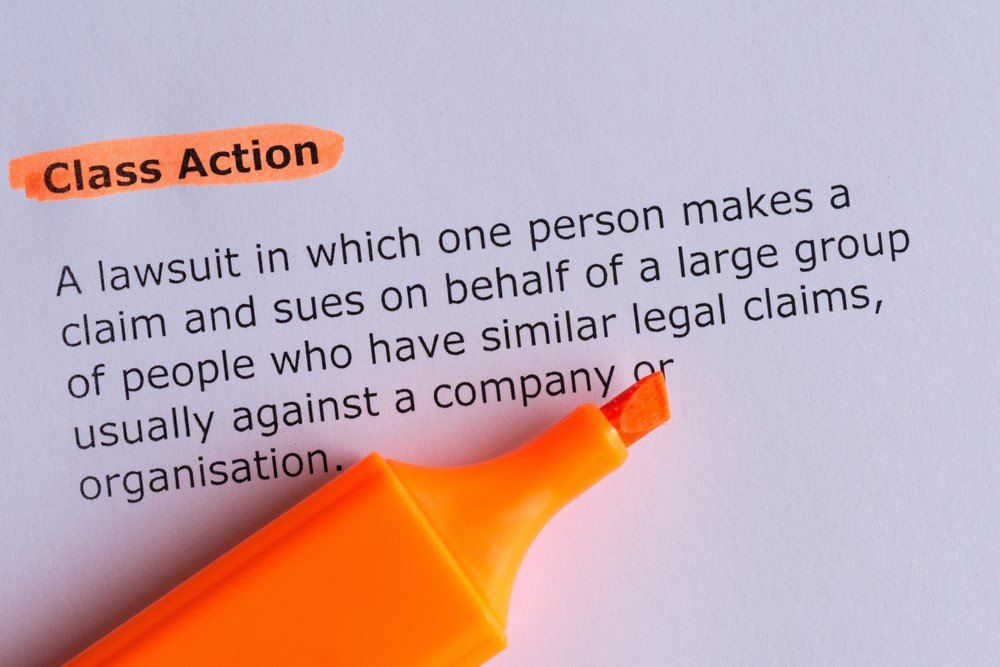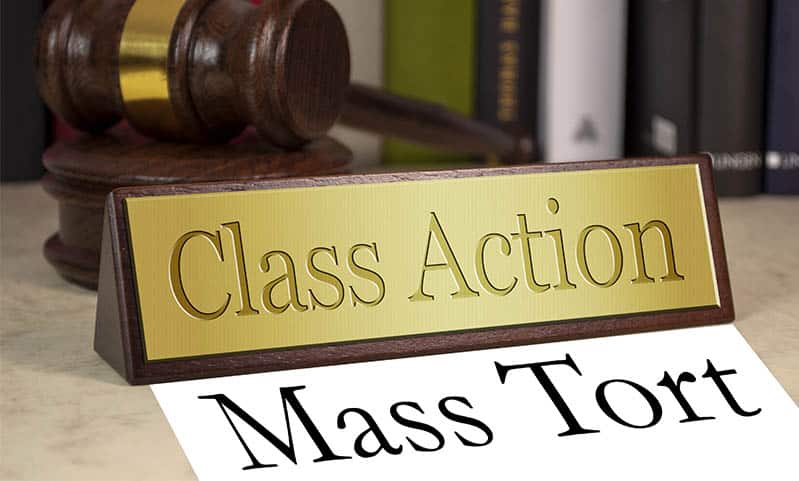Justice for All: The Role of Class Action Lawsuits in Safeguarding Consumers
Trick Factors to Think About in Class Activity Claims: Insights for Legal Representatives
Course activity legal actions can be challenging and complex for attorneys to navigate. From class accreditation demands to problems computations and negotiation arrangements, there are a number of crucial variables that require to be meticulously taken into consideration. Recognizing these factors and their implications is essential for attorneys intending to efficiently represent their clients in course activity lawsuits. By delving into the details of course action lawsuits, this conversation intends to supply valuable insights for lawyers looking for to browse this complex legal landscape.
Class Certification Needs
To proceed with a course activity suit, lawyers have to browse with a collection of rigorous class certification requirements. Course qualification is a critical stage in the litigation procedure that establishes whether a group of complainants can be licensed as a class and continue with their insurance claims collectively. These needs serve to make certain that class activities are suitable and efficient mechanisms for resolving conflicts involving many complainants.
One of the key requirements for course certification is numerosity. This requirement requires that the class be so many that joinder of all participants is impracticable. While there is no set mathematical threshold, courts usually consider a class with greater than 40 members as adequately countless. In addition, commonality is one more necessary consider class accreditation. It calls for that there are concerns of law or reality usual to the class, which have to predominate over private problems.
Adequacy of representation makes sure that the representatives will rather and properly safeguard the rate of interests of the class participants. A class activity must additionally please the demand of prevalence, indicating that a class activity is an exceptional technique for adjudicating the conflict contrasted to various other available methods.
Navigating with these course qualification requirements can be complicated and challenging for legal representatives. Understanding and conference these demands are crucial to successfully go after a class action legal action on behalf of a group of plaintiffs.

Commonness of Cases
The following important aspect to consider in the course certification procedure is the commonness of cases amongst the complainants. Commonality describes whether the course participants share similar lawful problems and concerns of reality that can be fixed collectively. To put it simply, it is essential to identify if there prevail questions of law or reality that are main to the lawsuits which predominate over any kind of individual concerns.
To develop commonness, the plaintiffs need to demonstrate that there are lawful or valid concerns that prevail to the entire course. This can be achieved by determining a common training course of conduct or an usual lawful concept that underlies the insurance claims (Class action lawsuit). The presence of typical questions is very important because it advertises judicial performance and economic climate by permitting a solitary decision to settle the issues for the entire course
Nevertheless, it is very important to note that the commonality need does not demand that all the individual insurance claims be the same. Distinctions in problems or private conditions do not necessarily defeat commonality if there are still common questions that bind the class together.

Damages Computations
When calculating problems in course action suits is the precise evaluation of financial losses incurred by the course members,One critical aspect to think about. In order to identify the proper quantity of compensation, it is required to review the level of injury experienced by each individual within the course. This can be an intricate job, as it needs a thorough analysis of various elements, such as the nature and period of the harm, the financial effect on the impacted individuals, and any kind of other appropriate considerations.
When examining monetary losses, it is essential to consider both the indirect and direct damages endured by the class members. Straight problems describe the real out-of-pocket expenditures incurred as an outcome of the defendant's actions. These may include clinical bills, home damages costs, or any kind of various other substantial monetary losses. On the various other hand, indirect problems encompass the intangible losses that are harder to evaluate, such as psychological distress, loss of online reputation, or reduced top quality of life.
To determine damages properly, legal representatives must gather detailed proof, including financial documents, expert opinions, and testaments from the course members. They might likewise need to involve economic and economic specialists who can give understandings right into the lasting monetary effects of the injury endured.
Negotiation Settlements
Throughout negotiation arrangements, attorneys need to take part in mindful and strategic discussions to reach a mutually acceptable resolution for all events associated with the class activity legal action (Class action lawsuit). Settlement arrangements are an essential stage in the lawsuits procedure, where the celebrations try to reach a compromise without mosting likely to trial. These arrangements require lawyers to utilize their negotiation skills, lawful know-how, and understanding of the case's strengths and weaknesses
One essential variable to think about throughout settlement browse around these guys arrangements is the potential dangers and prices related great site to continuing to test. Lawyers have to carefully evaluate the possibility of success at trial and weigh it against the potential benefits of a negotiation. They must also take into consideration the potential time and sources that would be required to undergo a trial, in addition to the possible adverse publicity that could result from a public trial.
One more vital factor is the interests and worries of the class members. Attorneys require to comprehend what the course members hope to achieve through the suit and exactly how a settlement can resolve their grievances. By considering the course participants' point of views and talking to them throughout the negotiation process, attorneys can better support for their passions and make sure that any negotiation gotten to is fair and satisfactory.
Additionally, lawyers must be prepared to work out with the opposing party and their lawful reps. This requires a deep understanding of the staminas and weaknesses of both sides' arguments and a desire to compromise. Skilled mediators can utilize this understanding to locate typical ground and craft imaginative remedies that satisfy the demands of all parties included.
Reliable Customer Representation
To successfully represent their clients in class action suits, legal representatives have to have a comprehensive understanding of the situation and carefully advocate for their clients' rate of interests. Effective client depiction calls for attorneys to establish open lines of interaction and preserve a solid attorney-client relationship throughout the whole lawsuits procedure.
First and leading, legal representatives have to completely assess the truths, legal anonymous problems, and possible risks connected with the case. This consists of carrying out a detailed investigation, evaluating relevant documents, and seeking advice from with experts if essential. By acquiring a deep understanding of the case, legal representatives can develop a tactical method tailored to their clients' needs and purposes.
Furthermore, attorneys must proactively advocate for their clients' passions throughout all stages of the legal action. This entails composing persuasive lawful disagreements, carrying out extensive research study, and presenting engaging evidence to support their clients' cases. Legal representatives should likewise remain notified about recent developments in course action regulation and use this expertise to reinforce their customers' settings.
Along with lawful advocacy, efficient client representation includes providing normal updates, addressing questions, and attending to any kind of issues that customers might have. Lawyers need to be aggressive in keeping their clients educated concerning the progress of the situation and any type of considerable growths that might impact the result.
Inevitably, effective client representation requires attorneys to be diligent, responsive, and committed to shielding their clients' rights and passions. By taking on a client-centered technique, lawyers can make best use of the possibilities of achieving a favorable outcome in class action claims.
Conclusion
In verdict, legal representatives entailed in class action legal actions need to consider key aspects such as course accreditation requirements, the commonness of cases, damages estimations, negotiation negotiations, and effective client representation. By very carefully attending to these variables, attorneys can boost their chances of success in class activity suits and ensure that the passions of their clients are safeguarded.
Understanding these variables and their ramifications is critical for legal representatives intending to effectively represent their customers in class action claims.To continue with a course activity legal action, legal representatives have to browse with a series of stringent course qualification requirements. Class accreditation is a crucial phase in the litigation process that figures out whether a team of complainants can be accredited as a class and continue with their cases collectively. A class action should additionally please the need of superiority, meaning that a class action is a superior technique for settling the conflict compared to other readily available techniques.
One important facet to consider when determining problems in class activity lawsuits is the exact analysis of economic losses incurred by the class members.